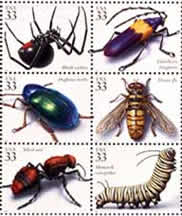Though unnoticed by the world at large, a whole giant ecosystem is collapsing. It has taken us a lot of time to understand this catastrophe for two reasons: one cultural, one scientific. Firstly, we generally do not care for insects (bees and butterflies excepted). In the population as a whole there is little sympathy for the fate of the chitin-skeletoned little things that creep and crawl; our default reaction is a shudder. Fewer bugs in the world? Many would cheer.
Secondly, for the overwhelming majority of insect species, there is no monitoring or measurement of numbers taking place. It is a practical impossibility: in the U.K. alone there are about 24,500 insect species—about 1,800 species of bugs, 4,000 species of beetles, 7,000 species of flies and another 7,000 species of bees, wasps and ants—and most are unknown to all but a few specialists.
So what is the future for 21st-century insects? It will be worse still, as we struggle to feed the nine billion people expected to be inhabiting the world by 2050, and the possible 12 billion by 2100, and agriculture intensifies even further to let us do so. You think there will be fewer insecticides sprayed on farmlands around the globe in the years to come? Think again. It is the most uncomfortable of truths, but one which stares us in the face: that even the most successful organisms that have ever existed on earth are now being overwhelmed by the titanic scale of the human enterprise, as indeed, is the whole natural world.
Source: Michael McCarthy/The Guardian, Dec 29, 2017
https://www.alternet.org/environment/giant-insect-ecosystem-collapsing-…

- Login om te reageren
